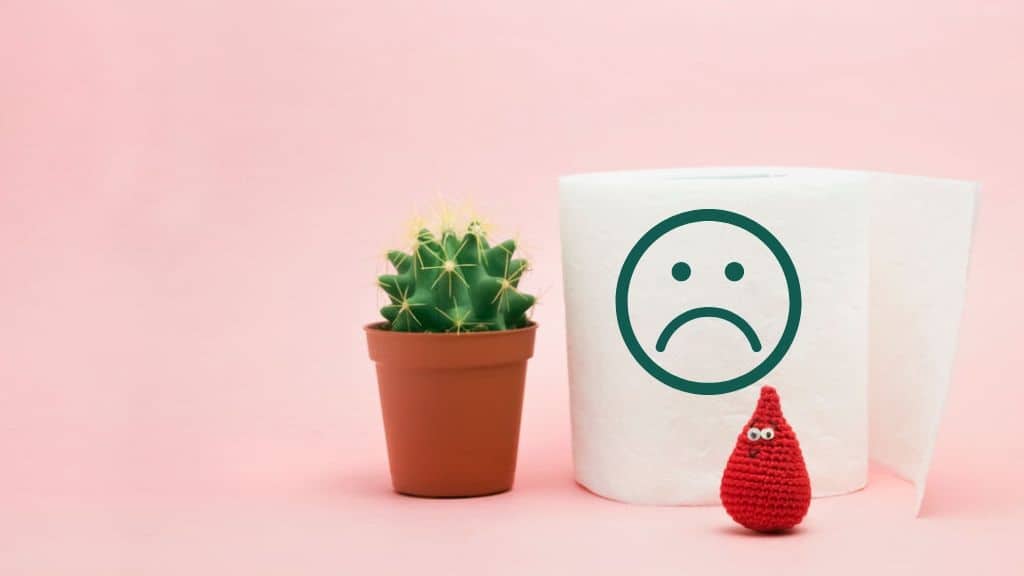
Table of Contents
For women, being pregnant is a beautiful time. Nothing can adequately express the joy of bearing children, the enduring love relationship, or the emotional connection a woman feels throughout pregnancy. Yet, some women experience postpartum rectal bleeding from piles or hemorrhoids after giving birth.
Rectal bleeding is frequent in women who give birth vaginally. Constipation, as well as swelling around the anus, is another factor contributing to the bleeding, which occurs after a bowel movement. Even though discomfort during birth is usual, speak with a doctor to receive medical attention. To learn how to stop postpartum rectal bleeding, keep reading. Let’s look at it.
Postpartum Rectal Bleeding: What is it?
After birth, postpartum rectal bleeding is fairly frequent in women. Hemorrhoids are to blame for the bleeding. It typically occurs when the lower rectum is subjected to strong pressure when giving birth.
Usually, postpartum rectal bleeding resolves on its own after a while, but if it persists, it is advised to see a doctor to receive the proper care.
Rectal bleeding after giving birth: Why does it happen?
Postpartum rectal bleeding can occur for a number of causes. Hemorrhoids, however, are the most frequent cause of rectal bleeding.
- Hemorrhoids affect up to 40% of women, often within a few days of birth or even in the final trimester of pregnancy.
- Rectal bleeding can also occur after a normal birth or a delivery of multiples.
- During pregnancy, women frequently have constipation and enlarged veins. The end outcome of this may be hemorrhoids that cause rectal bleeding after birth.
- Anal fissures, or skin cracks close to the anus, can develop as a result of constipation. This condition has the potential to be uncomfortable and bleed.
- Postpartum rectal bleeding also occurs in pregnant and postpartum women who suffer high levels of stress.
Is postpartum rectal bleeding common?
Rectal bleeding is frequent following childbirth and postpartum. Normally, it happens if a woman had a typical birth and experiences postpartum constipation. Yet occasionally it might hurt and irritate. Your doctor will prescribe you hemorrhoid medication and advise you on the necessary safety measures if you speak with them.
Rectal hemorrhage can also be reduced by exercise. It would be ideal to get medical advice from licensed professionals, nevertheless.
7 Proven strategies to stop Postpartum Rectal bleeding
Here are the top 7 strategies for avoiding postpartum rectal bleeding. Let’s have a peek.
Bathe in warm water
Try taking a hot bath or sitz bath to relieve your hemorrhoids. Hemorrhoids can cause pain and irritation, therefore using a sitz bath (a little water tub placed over a toilet seat) for 10-15 minutes twice or three times a day might be helpful.
To lessen discomfort and swelling, add Epsom salt to the water. Also, it aids in lessening the discomfort brought on by bowel motions.
Straighten up and sit on a cushion or pillow
When you have hemorrhoids, sitting in a rocking or reclining chair is more pleasant than in a straight chair. Access pressure from the straight-backed chair is applied to the rectal area, which might be painful and uncomfortable. Hence, if you want to sit on a chair, you can use a soft cushion or pillow. It aids in reducing pressure on the rectal regions.
Quit lingering on the toilet for too long.
Due to strain on the enlarged veins, prolonged toilet usage might result in discomfort and pain in the lower abdomen. Thus, be careful not to stay in the toilet longer. Furthermore, refrain from reading newspapers and using mobile devices in the lavatory.
Also, never try to limit your bowel movements because doing so will make your hemorrhoids hurt and inflamed more. Moreover, it might dry up your feces and cause constipation. Hemorrhoids may develop for this reason.
Use a bowel softener
Take only the stool softener your doctor has prescribed. This makes passing stools easier without exerting much effort. This aids in the ruptures and fissures healing more quickly.
Consume foods high in fiber
Hemorrhoids are frequently caused by constipation in women after birth. As a result, a woman has to consume a diet high in fiber to manage digestive discomfort. Also, drink a lot of water to aid with constipation.
Do the Kegel exercise.
The blood flow in the veins and tissues of the rectal area can be improved by kegel exercises. In addition, strengthening the muscles of the vagina and pelvic floor is beneficial. You, therefore, have hemorrhoid relief.
Limit your involvement in activities that involve rectal pressure.
Applying pressure to the rectal regions is the main cause of hemorrhoids. In order to prevent strain on the rectal regions, you should refrain from doing things like carrying heavy objects, being obese, stressing out over having a bowel movement, and spending too much time on the toilet.
Conclusion
After a typical birth, postpartum rectal bleeding is a frequent issue a woman faces. Yet, because of hemorrhoids and fissures at the anal, some women frequently have rectal bleeding. If you use the advice given above, the issues disappear after a few weeks. But, if you continue to have serious issues, make an appointment with a doctor for the proper assessment and treatment.
FAQs: Postpartum Rectal Bleeding
1. Why do I bleed postpartum when I poop?
2. How can I get rid of constipation after giving birth?
3. What foods should I avoid while experiencing postpartum rectal bleeding?
Sources:
1. https://www.webmd.com/first-aid/rectal-bleeding-treatment
2. https://www.webmd.com/baby/what-to-do-if-you-have-postpartum-hemorrhoids









